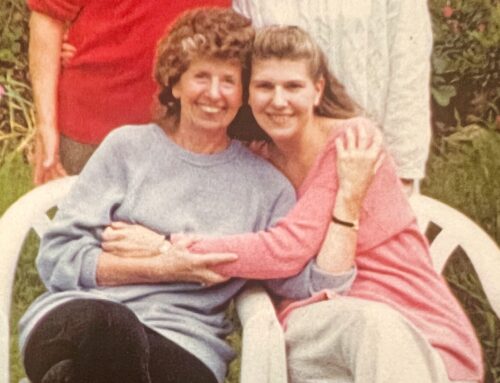
At home, Nina expresses her feelings in beautiful artwork, yet learned the hard way as a child that expressing emotion directly in the spoken word could (and often would) invite conflict amongst her peers and her family. So she quickly learned to bite her tongue when she was aggrieved. So ‘calm and professional’ Nina puts on her mask as she steps into the office each day and regularly experiences anger rising up in her throat whenever her needs are overlooked or her ideas are stolen, but each time she swallows it down, often finding herself suffering from throat infections, especially when she takes time out for a holiday.
After years of practice, Nina had begun to notice that her mask was no longer reserved just for work. Despite being a natural people person, she revealed that if she ever felt hurt or upset, she would avoid social situations for fear of accidentally letting her true feelings slip, or otherwise she would have to put on the mask again, which left her feeling exhausted. After years of this behaviour, Nina became defensive, angry and suspicious of others. She recognised that she had become disconnected from herself and others and found her way to a War to Peace workshop.
During a conversation about the ‘Unlucky 7’ signs of being at War, Nina was interested in the statement ‘I gather allies and evidence to prove that I am right.’ In the discussion, she had a ‘lightbulb moment’ when the workshop leader expanded on this point – Nina realised that when she had been at school, gathering allies was exactly what she had done when she felt she had been wronged. She would tell her friends what had happened, they would take ‘sides’ with her and invariably, a small disagreement would escalate into a row which would last for weeks between factions of classmates. Her coping strategy when she changed school was to reinvent herself by staying quiet.
Nina was also relieved to learn that she wasn’t the only one who gathers evidence to prove she is right about the people she is in conflict with and she shared that her reaction is to sit and wallow in her ‘rightness’, leaving her mind whirring with all the things she wished she said when the conflict first arose. At the workshop, she learnt three methods to quickly change her emotional state and vowed to come up with her own version that would help her release upset, instead of holding it in or gathering evidence and allies as she had done in the past.
Four months later, we heard from a very relaxed and much more outgoing Nina, who had come up with a rather unusual solution that she wanted to share with us: she had made an agreement with a highly trusted friend to be each other’s ‘occasional rant partner’. The simple rules were that one could phone the other and ask permission to rant. The other person would make sure they were out of earshot of anyone else and then the caller had three minutes to shout, swear, scream and, well, rant about something that had upset them. The rant partner would listen, not interrupt and would let them know that their rant had been received and that they loved them. Crucially, the rant was never mentioned again or brought up in conversation in the future (it would be so easy to become an ally after all). The rant was treated purely as a vent and its contents were not given importance.
Nina told us that it felt as though the large, familiar lump had finally cleared from her throat. Whenever she got angry, she ranted, then didn’t feel the need to gather allies or to wallow in the evidence that she was ‘right’. She felt seen by her friend in her rage, let it go, and then was far better equipped to objectively assess the situations that had caused the rage. And she would witness her friend too, instead of being the moaning partners and allies they had once been to each other. Nina also reported that after many years of singledom, she is now dating – and has been leaving her mask at home!
Over to you
When do you find yourself wearing a mask? Could you benefit from having a rant partner instead of an ally? Identify someone today who could fulfil that role for you.
Do you know someone who could benefit from War to Peace?
If you know someone who would benefit from removing their mask, our next open-access War to Peace workshop is on 17 October and we have just THREE spaces left. To book your place, click here.
P.S. Pass it on!
Found this useful? Then please share this article using the icons below and do leave us a comment.
“What’s your mask costing you?”
Please leave your name and email address at the top or bottom of this page to receive more articles like this.
photo credit: anoldent via photopin cc
©Halcyon Global 2014







Leave A Comment